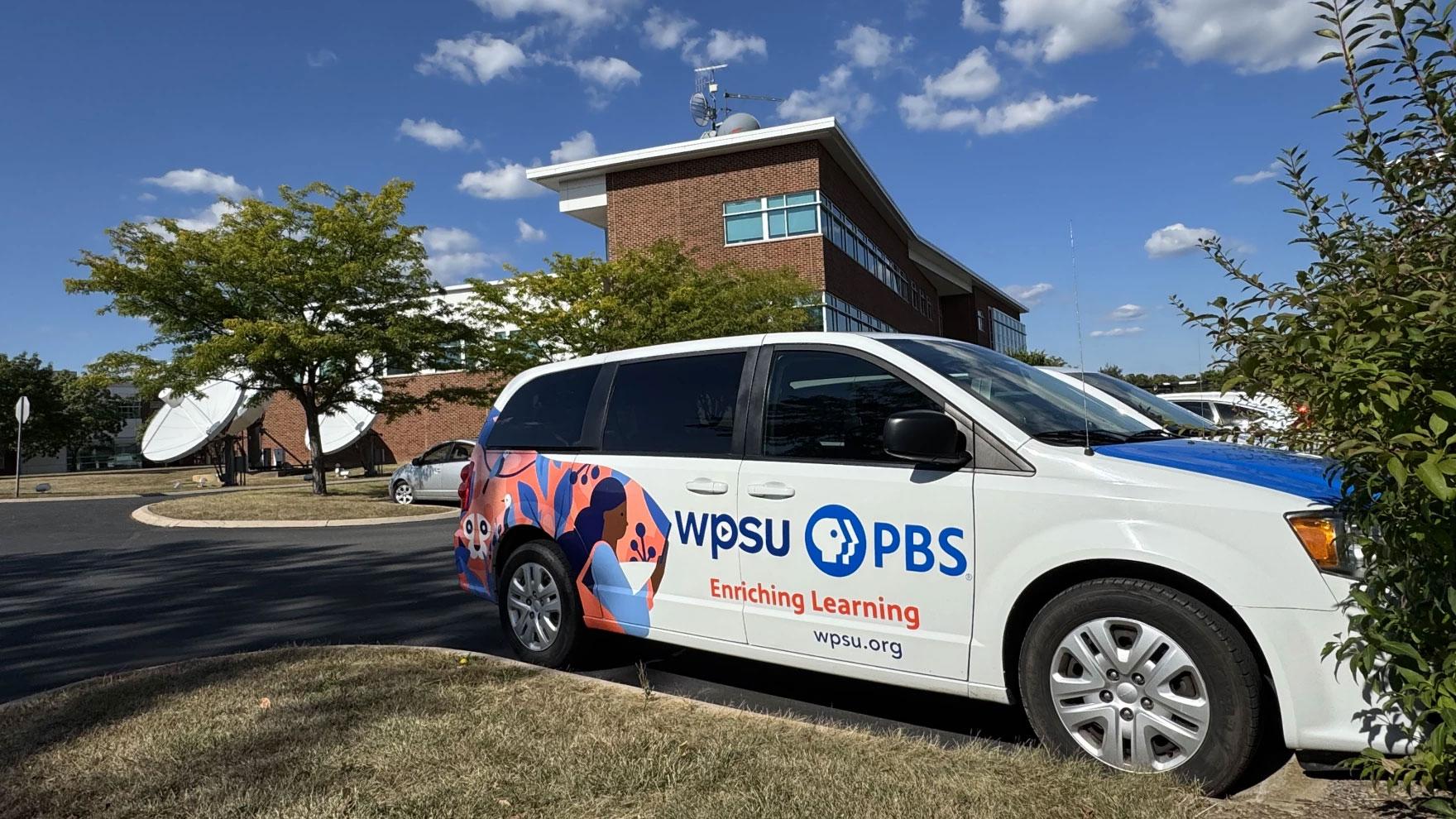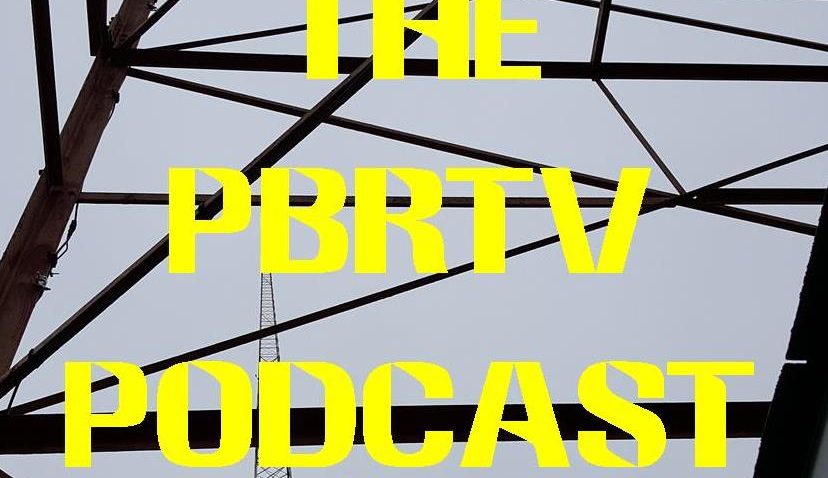Penn State to Close Down TV Station
September 12, 2025
The Pennsylvania State University will close down its campus-based television station next year.
After Penn State trustees rejected a plan to sell WPSU to WHYY, that station’s leader called the decision “a shame,” and community members expressed frustration about the impending loss of a community asset that serves a large stretch of central and northern Pennsylvania.
The university board of trustees’ finance committee voted unanimously Thursday to reject a proposal to shift ownership of WPSU to WHYY, the Philadelphia-area public broadcasting network. Instead, the university plans to shut down WPSU by June 30, 2026.
Russell Bloom, a longtime community volunteer and supporter of WPSU, said his initial reaction was sadness.
“I hope there’s a lot of pushback and outcry,” Bloom said. “It’s time that the community speaks up and says this is wrong. And if Penn State doesn’t want to support it, fine, then the community really needs to come together and figure out a way that we can make this happen, so the local programming — especially the local programming — doesn’t just get wiped out.”
Bloom pointed to the free educational programming WPSU provides for children, along with local shows like “In Performance at Penn State,” an hour-long show that features performances from students and faculty in Penn State’s School of Music.
WHYY’s CEO Bill Marrazzo called the decision “a shame” and said he believed the deal was fair. He said it was the result of 13 months of negotiations between WHYY and Penn State.
“One point five million Pennsylvanians will not have free access to a public media experience,” Marrazzo said of the potential consequences. “It’s a serious blow.”
Under the proposal, Penn State would have paid a total of $17 million to WHYY in declining amounts over five years. Marrazzo said that money would have supported rebuilding WPSU’s business infrastructure while keeping WHYY whole.
One of the questions trustees raised about the proposed deal was a lack of a guaranteed job for all WPSU employees. Marrazzo said they needed to hire based on who would make the station sustainable. WPSU currently has 44 employees.
“So that point was not negotiable,” he said. “We could not guarantee everyone a job, but we were certainly anxious to hire as many of those people as we could.”
WPSU first went on the air in 1965 on analog VHF channel 3 as WPSX-TV. Though operated out of Penn State’s University Park campus, the station is licensed to Clearfield, with transmitter facilities located 7 miles north of the borough.
The station is also the PBS network affiliate for the Johnstown-Altoona television market. While on the analog VHF band, the station was occasionally viewable in Pittsburgh’s northeastern suburbs.
WPSU-TV was the first educational TV station in Pennsylvania to be licensed to a university.
Anne Danahy of WPSU contributed to this report.


I would not rule out WITF Harrisburg coming in to the picture. However, both WHYY and WITF have unionized staffs, and there’s probably some blowback on the number of WPSU employees both would be willing to take on. Maybe one will end up with WPSU-TV and the other will end up with WPSU-FM. The PSU “wind down” plan is probably a negotiating ploy. Stay tuned!
This is a HORRIBLE decision by those in charge, both for a variety of communities and public television in general….
On RF15.1, WPSU also can be seen on occasion over-the-air in the Kiski Valley.
Is this a case of, ‘Let\’s take our ball and go home’, because why would you just sign off and not consider selling it? I know older media, broadcast, has been devastated by the vastly increased choices on line, but it ought to be worth something, when a last chance AM station can still fetch a few bucks.
Boomer
Did I read this right, the proposal was for Penn State to pay $17 million in installments TO WHYY to take the station off their hands? Talk about tying a pork chop around the child’s neck in order to get the dog to play with it.
Very different from the situation I saw years ago when the University of Michigan wanted to unload WFUM, the PBS station they operated in Flint. It was sold to Central Michigan University to become WCMZ, which ran for eight more years with no local content until CMU disposed of it in the spectrum auction. In that case U of M collected $1 million for the sale. CMU eventually got fourteen times that amount for selling their frequency.
My take on this: Pennsylvania doesn’t currently have a statewide network of PBS stations like Maryland, West Virginia, and Kentucky do. (Ohio doesn’t either.) Why don’t the general assembly just form a statewide network that would help ALL PBS stations in the state? I mean, it would help a certain public station in Western PA that has had their own financial challenges unrelated to current events–I’m still surprised WQED hasn’t even taken up an offer from Sinclair to host its primary channel in ATSC 3.0 on WPNT for free.
And the thing is, the state has the perfect solution to fund this too: privatize the state liquor stores. You know how much revenue the state would get by selling the stores off to the largest bidder, then the continual revenue with the annual liquor license renewals? Of course like anything else, it’ll come down to what’s in it for the politicians.
PPTN (Pennsylvania Public Television Network) was created in 68-69 to promote educational, cultural, and civic programming statewide. In the 2009–2010 state budget, PPTN’s funding was eliminated. Its responsibilities were transferred to the Public Television Technology appropriation under the Executive Offices (Office of Administration). Informally, the 7 stations today are called “Pennsylvania PBS”.
In any event, there are ways the state could fund it. Privatizing the state liquor stores–something that has been talked about for decades–was just one example. For example, use the funds from selling off the stores (which IMO should be done auction style to bring in the highest bids possible) as a one-time payment for startup funding. Then use some funding from annual liquor license renewals (with the rest obviously going to the PLCB) for continual funding. On the consumer side, charge like a .5% sin tax on all alcohol sales. Seriously, its pretty easy to figure out.
Another solution–and this seems to also be like privatizing the liquor stores in that there’s more talk than actual action in Harrisburg–is legalized recreational marijuana. Pretty much the same thing there except the dispensaries would obviously have to open from scratch. Again, this comes down to what the General Assembly wants to do and how it benefits them, but I will say that when even red states like Ohio and Arizona have legalized marijuana, PA is definitely missing out on revenue streams to help these public broadcasting ventures whether it be PBS or NPR. Just like it took what, 20-30 years to realize how much gambling revenue the state was losing to West Virginia and Atlantic City when all you had to do was go to the casinos in those locales and see that 90% of the cars in the parking lots had PA license plates.
And I apologize, not trying to go on a political rant (especially since I haven’t lived in PA in eight years), but finding these funding sources for PBS & NPR stations are easy if politicians from both parties give bipartisan support for this.